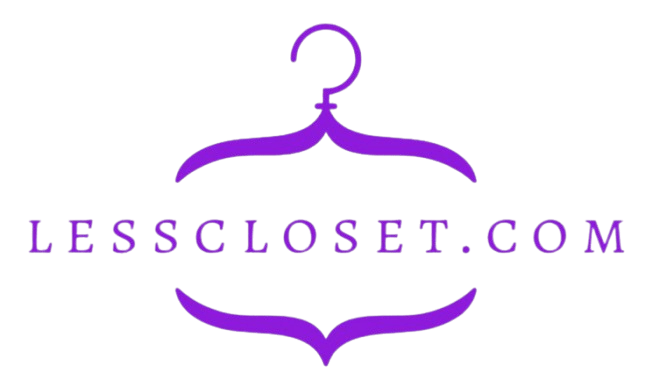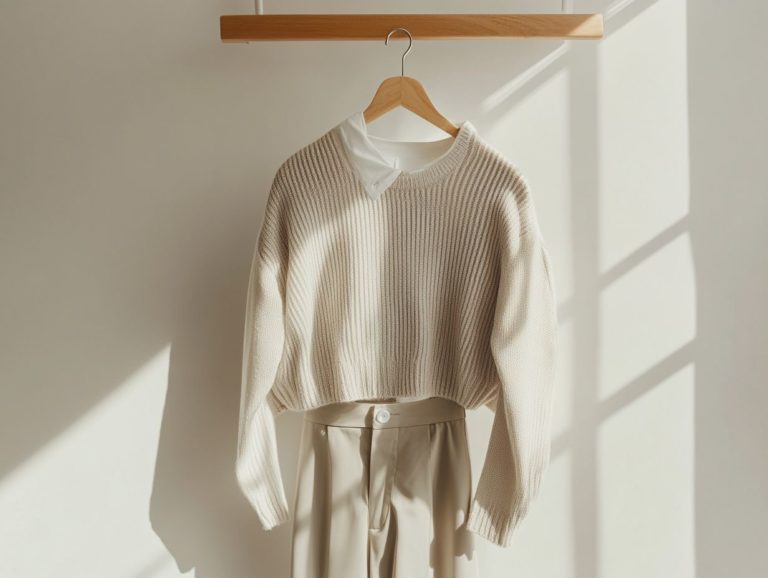What are Key Questions to Ask Before Shopping?
Shopping can be a delightful yet overwhelming experience. It is influenced by your personal preferences and choices on what to buy and spend your money on.
Understanding your shopping habits is crucial for better financial decisions. This exploration delves into the various factors that shape your shopping choices, offering critical questions to evaluate the necessity and quality of items. You’ll also discover practical tips for researching products thoroughly, allowing you to evaluate your needs and wants effectively.
You will find effective strategies designed to help you resist tempting impulse buys that distract you, ensuring that you make thoughtful decisions that align with your financial goals. Prepare to transform your shopping experience into something truly intentional and satisfying!
Contents
- Key Takeaways:
- Understanding Personal Shopping Habits
- Key Questions Before You Buy
- Exciting Tips for Smart Shopping Choices!
- Avoiding Impulse Buying
- Frequently Asked Questions
- What are Key Questions to Ask Before Shopping?
- Why should I ask questions before shopping?
- What is my budget, and how can I make the most of it?
- What do I need versus what do I want?
- Do I already have something similar?
- Am I getting the best deal, and is this purchase truly worth my time and energy?
- What are the return and exchange policies in terms of budget and expenses?
Key Takeaways:

- Understand your personal shopping habits and what influences your decisions.
- Before making a purchase, ask yourself if the item is necessary and of good quality. Consider the price and alternatives.
- Make informed shopping decisions by researching products and brands, as well as evaluating your personal needs, wants, and financial resources.
Understanding Personal Shopping Habits
Understanding your personal shopping habits is crucial for navigating the emotional landscape that often influences your financial decisions. Whether you’re driven by a need to declutter, a desire for debt freedom, or the impulse to indulge in a little retail therapy, your shopping experiences reflect your values and priorities.
By examining these habits like choosing between Goodwill or Poshmark you can uncover insights into how your spending patterns affect your overall happiness and financial well-being. This introspective journey can prompt you to question what you genuinely desire versus what societal pressures lead you to purchase.
Factors that Influence Shopping Decisions
Several factors significantly influence your shopping decisions, from emotional triggers like joy and impulse to practical considerations such as budget and expenses.
These emotional triggers can lead to clutter, as you might find yourself making purchases based on fleeting feelings rather than thoughtful evaluation. If you re feeling a bit down, you might indulge in retail therapy, resulting in an accumulation of unnecessary items at home.
Feelings like low self-esteem or pressure from others can lead to impulse buys, further exacerbating clutter and financial strain. This shows just how vital it is to develop mindful and intentional purchasing habits.
By aligning your choices with long-term goals rather than momentary desires, you can create a more harmonious living space. Practicing thoughtful buying allows you to alleviate financial stress and cultivate an environment that truly reflects your needs and values.
Key Questions Before You Buy
Before making a purchase, it’s crucial for you to ask the right questions. This approach helps you assess the necessity and value of the item, ensuring that your financial choices are in harmony with your overarching goals and budget.
By evaluating what you truly need versus what you merely want, you can make more intentional decisions and minimize clutter in your life. Take a moment to reflect on whether the item will bring lasting happiness or simply offer a fleeting thrill; this distinction can significantly influence your spending habits.
Assessing the Necessity and Quality of the Item

Assessing the necessity and quality of an item is crucial for informed purchasing decisions that resonate with your financial goals and personal values.
By prioritizing durable, high-quality alternatives like investing in a well-crafted leather wallet instead of a cheap synthetic version you can elevate your everyday experience while minimizing the need for future replacements. This not only paves the way for a more minimalist lifestyle but also promotes thoughtful consumption, steering you away from temporary items that clutter your space.
Opting for products with longevity, such as a timeless, sturdy kitchen knife instead of mediocre, flimsy options, allows you to cultivate a more meaningful living environment. Each item you choose can serve a purpose and bring joy, ultimately aligning your material possessions with your overall life goals.
Considering Price and Alternatives
Considering price and available alternatives is crucial for you on the path to financial freedom, ensuring your purchases are in harmony with your budget.
By looking into secondhand options, like those found at Goodwill or Poshmark, you can uncover remarkable deals on high-quality items, often at a fraction of their original retail price.
This strategy allows for significant savings while promoting a more sustainable lifestyle by minimizing waste.
For instance, that designer handbag you’ve had your eye on, which typically retails for several hundred dollars, might be available for just a fraction of that cost on a resale platform. Shopping secondhand enhances your unique personal style and offers the thrill of discovering vintage clothing and rare finds that simply aren’t available in mainstream stores, making conscious spending all the more appealing.
Exciting Tips for Smart Shopping Choices!
Making informed shopping decisions demands thorough research into products and brands, enabling you to navigate the marketplace with greater confidence and clarity.
Researching Products and Brands
Thoroughly researching products and brands is crucial for you to make conscious choices that truly reflect your values and financial goals.
This process can encompass various methods, such as looking into customer reviews to uncover genuine experiences with a product. Comparing prices across different retailers not only helps you snag the best deal but also allows you to evaluate the quality-to-price ratio effectively.
Understanding the ethical practices of brands like their commitment to sustainability and fair labor can significantly shape your purchasing decisions. By diving deep into these aspects, you can ensure that your investments align with your principles, enhancing both your shopping experience and the impact of your choices.
Evaluating Personal Needs and Wants

Evaluating your personal needs and wants can bring clarity to shopping. It helps you avoid emotional shopping traps.
By taking the time to differentiate between what truly fulfills you and what merely captures your attention, you can make more intentional purchasing decisions.
This approach helps you understand your priorities better, leading to a more focused shopping experience that ultimately results in better financial choices.
Implementing strategies such as crafting a clear shopping list or sticking to a budget can effectively reduce clutter in both your physical space and mental landscape.
Simplifying your surroundings not only enhances your living conditions but also cultivates a sense of peace and purpose, making each item feel more meaningful.
Avoiding Impulse Buying
Avoiding impulse buying is essential for attaining financial freedom. This practice allows you to maintain clarity and focus on conscious decisions that align with your long-term goals.
Strategies for Resisting Temptation
Implementing effective strategies to resist temptation can significantly reduce instances of impulse buying and improve your shopping experience.
By creating a detailed shopping list before you head to the store, you can stay focused on your needs instead of getting sidetracked by alluring promotions.
Setting waiting periods giving yourself a brief pause before making a purchase can provide essential time to assess whether that item is genuinely necessary.
Emotional regulation techniques, such as mindfulness practices, are invaluable in managing the feelings that often lead to impulsive spending.
These approaches help you curb unnecessary expenses. They also promote a more intentional and enjoyable shopping experience.
Apply these strategies to make better choices and enjoy your shopping journey!
Frequently Asked Questions
What are Key Questions to Ask Before Shopping?

Before you shop, ask yourself these key questions to make the most of your trip!
Why should I ask questions before shopping?
Asking questions before shopping helps you make more informed decisions, save money, and avoid buyer’s remorse, enhancing your overall shopping experience.
What is my budget, and how can I make the most of it?
One of the most important questions to ask is how much you are willing and able to spend. Stay within your budget to avoid overspending!
What do I need versus what do I want?
Make a list of the things you actually need and want. This helps you prioritize and avoid impulse purchases.
Do I already have something similar?
Before buying something new, check if you already have something similar at home. This can prevent buying duplicates and save you money.
Am I getting the best deal, and is this purchase truly worth my time and energy?
Whether you’re shopping in-store or online, compare prices to ensure you’re getting the best deal. This can help you save money in the long run.
What are the return and exchange policies in terms of budget and expenses?
Before making a purchase, ask about the return and exchange policies. This can save you from potential headaches later on.


